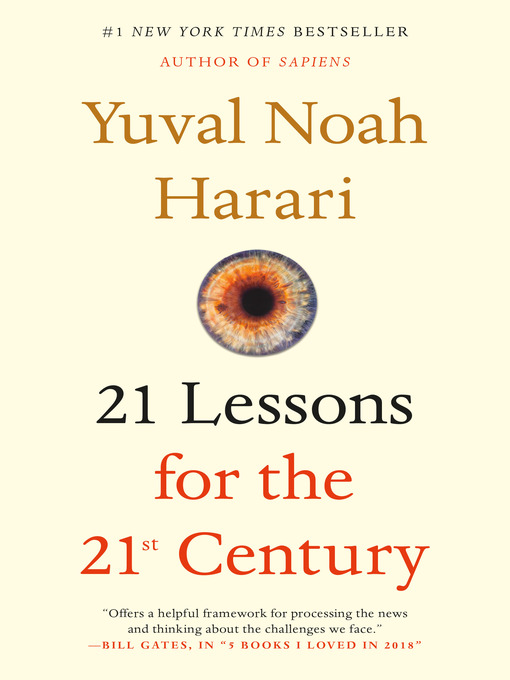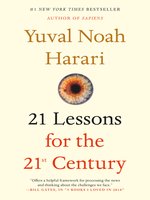من تصميم Yuval Noah Harari
“Fascinating . . . a crucial global conversation about how to take on the problems of the twenty-first century.”—Bill Gates, The New York Times Book Review
A FINANCIAL TIMES BEST BOOK OF THE YEAR
How can we protect ourselves from nuclear war or ecological catastrophe? What do we do about the epidemic of fake news or the threat of terrorism? How should we prepare our children for the future?
21 Lessons for the 21st Century is a probing and visionary investigation into today’s most urgent issues as we move into the future. As technology advances faster than our understanding of it, hacking becomes a tactic of war, and the world feels more polarized than ever, Harari addresses the challenge of navigating life in the face of constant and disorienting change and raises the important questions we need to ask ourselves in order to survive.
In twenty-one accessible chapters that are both provocative and profound, Harari untangles political, technological, social, and existential issues and offers advice on how to prepare for a very different future from the world we now live in: How can we retain freedom of choice when Big Data is watching us? What will the future workforce look like, and how should we ready ourselves for it? Why is liberal democracy in crisis?
Harari’s unique ability to make sense of where we have come from and where we are going has captured the imaginations of millions of readers. Here he invites us to consider values, meaning, and personal engagement in a world full of noise and uncertainty. When we are deluged with irrelevant information, clarity is power. Presenting complex contemporary challenges clearly and accessibly, 21 Lessons for the 21st Century is essential reading.
“Fascinating . . . a crucial global conversation about how to take on the problems of the twenty-first century.”—Bill Gates, The New York Times Book Review
A FINANCIAL TIMES BEST BOOK OF THE YEAR
How can we protect ourselves from nuclear war or ecological catastrophe? What do we do about the epidemic of fake news or the threat of terrorism? How should we prepare our children for the future?
21 Lessons for the 21st Century is a probing and visionary investigation into today’s most urgent issues as we move into the future. As technology advances faster than our understanding of it, hacking becomes a tactic of war, and the world feels more polarized than ever, Harari addresses the challenge of navigating life in the face of constant and disorienting change and raises the important questions we need to ask ourselves in order to survive.
In twenty-one accessible chapters that are both provocative and profound, Harari untangles political, technological, social, and existential issues and offers advice on how to prepare for a very different future from the world we now live in: How can we retain freedom of choice when Big Data is watching us? What will the future workforce look like, and how should we ready ourselves for it? Why is liberal democracy in crisis?
Harari’s unique ability to make sense of where we have come from and where we are going has captured the imaginations of millions of readers. Here he invites us to consider values, meaning, and personal engagement in a world full of noise and uncertainty. When we are deluged with irrelevant information, clarity is power. Presenting complex contemporary challenges clearly and accessibly, 21 Lessons for the 21st Century is essential reading.







